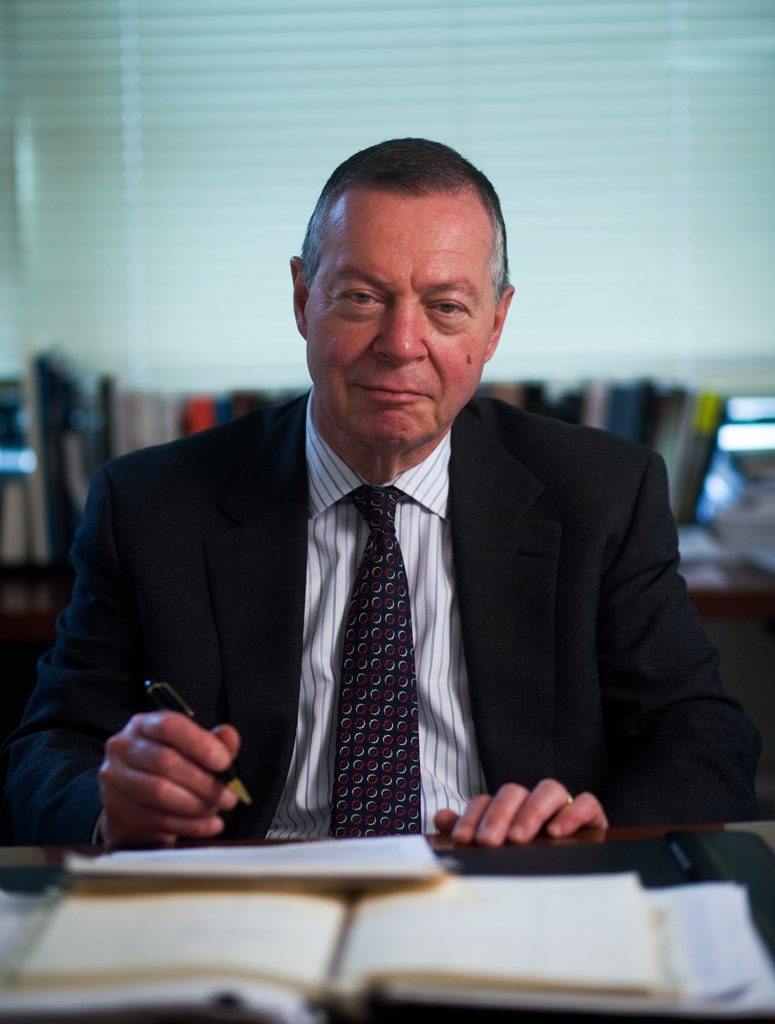ARYEH NEIER.
Neier’s legacy of leadership, ideas, and mentorship
“I consider that my most important role. You can’t do everything yourself and you have to find people who are top notch. That’s the secret to being successful in any institution. ”
In their interviews, narrators reflect warmly on working for, collaborating with, and learning from Aryeh Neier. From Neier’s management style to involvement in some of the most crucial intellectual debates of the last 60 years, the collection reinforces the idea that Neier’s legacy is most fully measured in the many professional and personal lives he touched.
-
Neier: I consider that my most important role. You can't do everything yourself and you have to find people who are top notch. That's the secret to being successful in any institution.
From Oral History Interview with Aryeh Neier.
-
Roth: I mean, this mentorship role that Aryeh played, extended quite broadly, I mean he clearly taught me how to oversee research. He sent me early on doing media work which I had never done before, and to meet with government officials. He’s very good about sharing the limelight. In fact, the first big assignments he gave to me were to oversee what became our World Report.
We didn’t call it that at the time, but we would do, at that point, an annual review of the US administration with a bunch of chapters on each country that we worked on and it was a bit of a thankless task to edit that. But he gave it to me, I had to write the introduction, then I did the press conference in Washington, so that was a real endorsement, it was a thankless task but it also was a big deal and it became a bigger deal over time. He did something similar with a report that we ended up abandoning, but we used to each year do a critique of the State Department’s country reports on human rights practices, which often were very politicized, and I oversaw that. So he really trusted me to do that and would if he saw something wrong, he’d periodically step in but he really was not interventionist at all. I got a sense from him on how to manage an organization. It was a much smaller organization.
From Oral History Interview with Kenneth Roth.
-
Yager: Two things, one, the essential value of the individual in the human rights movement. That we have to keep thinking creatively and innovatively and we can create things. He has consistently created new efforts, new communities, new pairings and teams of people that have done remarkable things. He sees a problem, and he creates a solution, and that only happens with people who think that way. And then second, that we’re all part of the same movement. These two things feel like they’re in tension, but they’re not. Every time I meet with Aryeh, I realize the history and how much I, as an individual, don’t matter as much as I think I do.
I consistently try to make myself more creative and create new things and new pairings and new interesting partnerships because that’s what Aryeh did, and that’s been so successful. But also, I realize I don’t matter, this is a huge movement. It’s kind of like when you see the universe on a clear night and think, I’m so small, but every single one of those stars matters. That’s the human rights movement, we are all part of something that is much larger than ourselves.
From Oral History Interview with Sarah Holewinski Yager.
-
Benardo: I worry that there—I can’t imagine another Aryeh existing in this world at this point in the human condition we live in, and that’s a disturbing thing to me, and it’s not just a question of generations or whatever, but the way in which he commits himself to a particular set of precepts and principles, the way in which he commits himself to debate as a necessary part of reaching deeper knowledge, if not consensus, the way he commits himself to just understanding so much and that one needs to read and be aware of the world to avoid falling into traps of tendentiousness and one-dimensionality. I worry that—and maybe I’m, as I approach my own anecdotage—I worry that maybe I’m just being weirdly nostalgic, and I probably am, but the ethos or the ethic that he had was such a powerful one, and I see it in too few people.
From Oral History Interview with Leonard Benardo.








